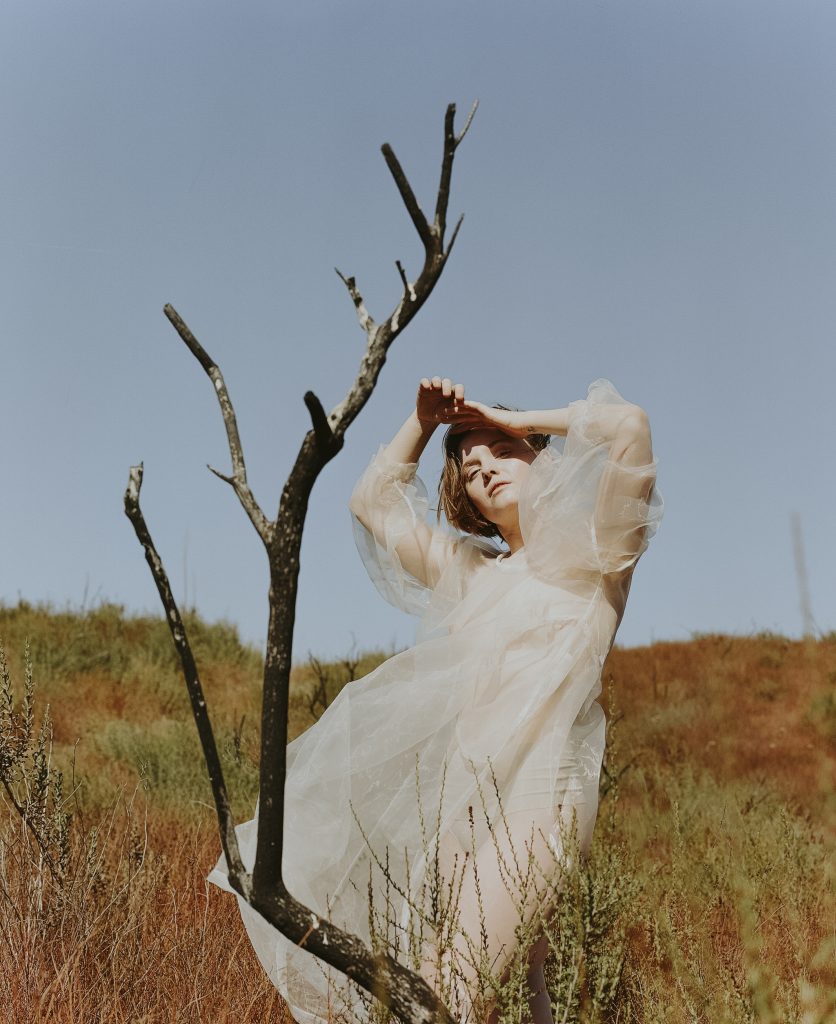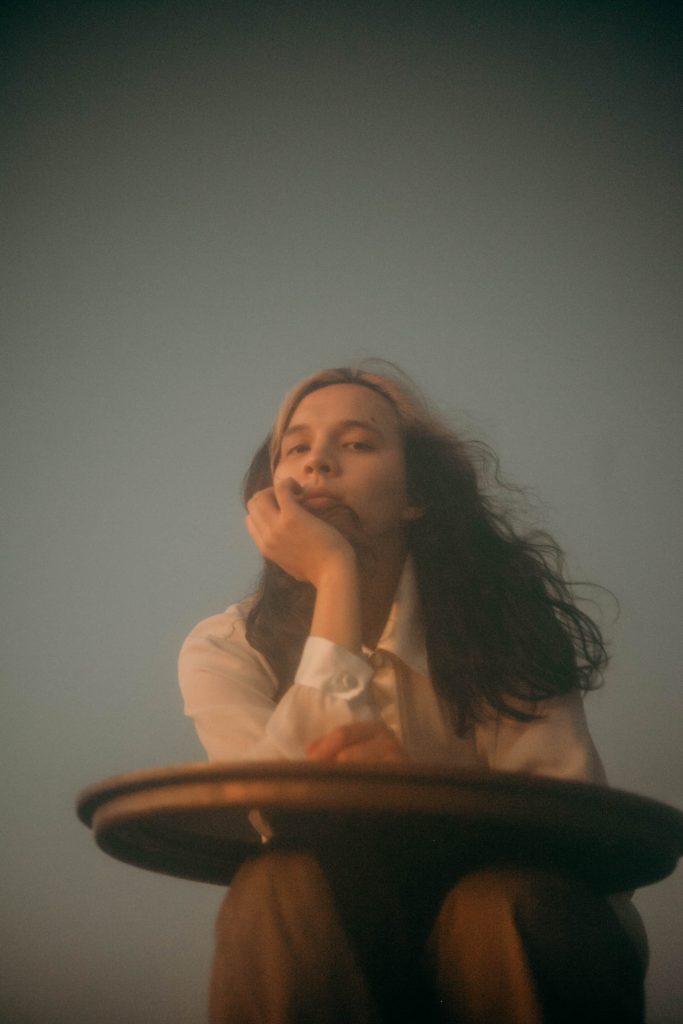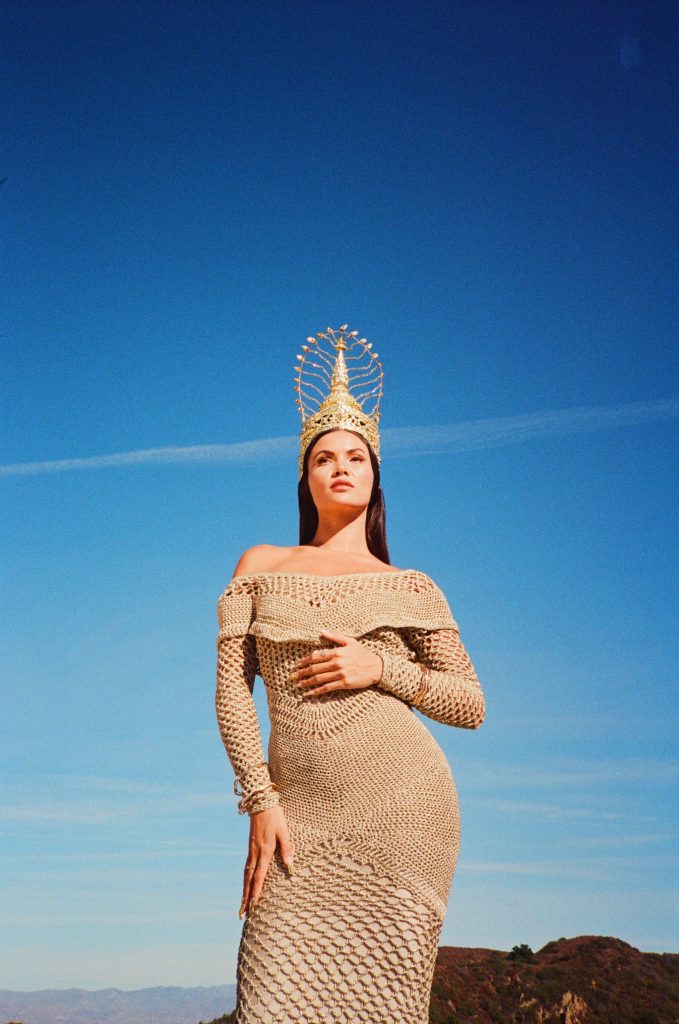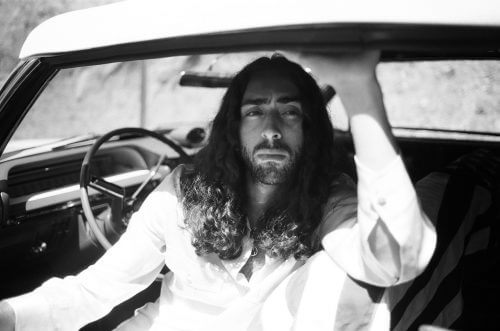Kathleen: Poetry With A New Heartbeat

What if we could make poems come to life? Los Angeles-based singer/songwriter Kathleen gives poetry a heartbeat. Her sophomore EP Kathleen II pulls you in with folk guitar chords and melancholy melodies. She captures listeners with lyrics that seep into the soul. Her acoustic sound floats you to serenity and her voice is comforting, yet strong like the arms of Mom catching you before a fall. There’s an optimism in her voice that expects a promising 2021.
Though she’s based in Los Angeles, Kathleen Brady Ross was raised in Colorado’s Rocky Mountains. Her love for nature trickles into her music, reminding us to appreciate the beauty and value of our planet. On her EP, she sprinkles in a sound of Pop that overwhelms you with serotonin. Her lyricism embodies 2020, soaking us in the reality of quarantine. Her voice gleams with a potent hope, as if to tell us that everything is going to be okay. We experience the dark side of the moon with Kathleen, taking moments to bask in the moonlight. I listen and want to cry. I listen and want to dance. I listen and want to run. I listen and believe in something beautiful.
From our Winter 2021 Issue: FRONTRUNNER spoke with Kathleen about the poets and writers that inspire her, the importance of remembering our connection to nature, how some events of 2020 has made her confident in her purpose, and takes us behind the scenes of her music videos.

Because your lyrics are so poetic, I’d like to know if there are any poets or writers who inspire you?
I love that you asked that, because I studied poetry in college. I just went to Asheville, actually. Did you ever learn about Black Mountain? It’s really cool. This experimental college came about during the Great Depression. I’ve heard about poets that have passed through, or are part of it, like John Cage and Denise Levertov (I don’t think she went to Black Mountain College, but she ran around with those circles). They were doing cool anarchist ways of self-sufficient education. They were very progressive in the middle of the South, too. But there’s this poet that I was reading about named Jane Mayhall. She’s so cool and ahead of her time. I’ve been ordering all of her books that I can find, and there’s not many. There’s one called Givers & Takers: Poems. It has poems about multimedia and feminist publications. A lot of really progressive stuff that just slams right now but [didn’t] really at the time. Some people couldn’t even read it because it was so progressive, so I’ve really been into that.
Who are your musical inspirations? Who have you been listening to lately?
I’ve been listening to everything lately. It’s all over the place. A lot of old Country music. I’ve been going back to Dolly Parton and disappearing into that world. I’m in east Los Angeles so I love the contrast of it and how it doesn’t fit at all. Just listening to a lot of weird Six Impala. It’s just really good. It’s the kind of stuff that will kill your Grandma if you played it, because it’s so fast and loud and scary, but it’s awesome. It’s an album they put out this year and to me it represents so much of how it feels to be alive right now. The last song on the album called “PLASTIC/TAPE 4” is like if Adult Swim was a song. It’s so dumb and all over the place, but that’s what I’ve been listening to a lot lately. Laurie Anderson and a lot of music that’s not typically music. You have to listen to it 30 times to even get it. I’m really into that.
What about music made you choose it? Or did music choose you?
It’s always been one whole body, I think. I’ve always been walking around singing. Teachers would have to tell me to be quiet because I was singing during tests and didn’t notice. I distinctly remember that my parents bought me this little guitar that was probably, like 20 bucks. It’s one of my favorite guitars. But I was never really interested in that; I thought it had too many strings and I didn’t get it. Then I got a little keyboard and my first instinct was to just make up melodies and lyrics. I never thought to learn a song that was already written until after 5 or 6 years of playing around. I was like, “Oh, playing another song? That’s smart.” So, it’s always been paired with writing. Also, I’m always listening to music because of misophonia. It’s a hatred of sound. I can’t stand specific chewing noises. I’ll be eating with my family and when they’re eating, I can’t take it. I have a couple friends who have it, too. It’s like the opposite of ASMR.
There are a bunch of juxtapositions of the sad and happy parts of this year within the EP, Kathleen II. What do you think music’s purpose should be in times like these? In fact, what do you think the purpose of music is?
“Dark Side of the Moon” was the only song written in quarantine. The others were a lot longer. “Can’t Sleep” is like two and a half years old. “August” is one of my oldest songs. I say that because I think what we’re dealing with right now has been going on for a very long time. It’s like being in a dirty kitchen and we’re all just standing around. You see bugs running around and we’re just like, “It’s just a couple of bugs. Whatever.” Then you put another dish in the sink and look at the bugs and think, “This is kind of fucked up, right?” Finally, in quarantine, we lift up the pile of dishes and there’s just colonies of insects growing and we’re like, “This is a problem.”
For me, music serves many purposes. Historically, music has always been surrounded by community, building community and allowing for community to process different emotions. Whether it’s joy or praise or sadness or mourning, it’s served lots of purposes. Even religion. When you’re in a concert, it’s kind of like the same thing. You have a feeling of feeling together. I think that there’s nothing better than when you hear a song and you feel hurt, and you feel understood. There’s nothing better than hearing a song you used to hate, and then you live through it. Before I went through a horrible break-up, I never understood Amy Winehouse. Then I listen to “Back to Black” and think, “Oh shit. I hear it now.” Sometimes it serves as a mirror, in that way. I look for those artists who come to themselves like Nick Drake. Then there are the Freddie Mercurys who are singing for everyone, and that’s beautiful too.

On “Dark Side of the Moon”, you sing, “A few months ago I thought the world was ending. It was burning all the work we’d just begun. But then through mornings without traffic, through horizons without smog I could see that wasn’t fire, no that was just the dawn.” Can you tell me how you got to this positive perspective?
It was the second wave of Black Lives Matter, that started with the killing of George Floyd and Breonna Taylor. Before, we were making banana bread. When that happened, it was this bolt of electricity that shook everyone awake. There’s just so much shit. This country is built on garbage. When I was coming up with that line, I had been in my own career, getting ready for touring, everything was going as planned. Then all of a sudden, there’s like a garage door slam and you gotta make do. So I felt like the world was ending and all the shit that I planned for wasn’t going as planned. We started to recognize the flaws of capitalism and how this country was built on white supremacy, how environmentalism is due to one voice being hurt by the white man.
I’m speaking to the Western world because there were major pollution contributors not led by white leaders, but [it’s] the patriarchy of it all and recognizing that we’ve been squishing voices. We need voices of indigenous people, people of color, and black communities. We need different perspectives, we need women and female leadership. All of that started to come up and it was so clear. For me at least, it’s very plain and I’m very excited. I feel great purpose and meaning in this new world and I’m grateful that I’m starting my career right now because I don’t have to rebuild anything or break anything down. There’s no fucking rules. I was like, “let’s just go.”
Your music videos such as “Can’t Sleep”, “The Longest Year” and the visualizer for “Dark Side of the Moon” are nature-heavy. What role does nature play in your music-making process?
I think it’s easy to say, “Oh nature is nice and happy” and all this shit, but it’s all one. That’s the way my brain is mapped out because I was raised in the Rocky Mountains for the main part of my life. My parents are in medicine and they’re scientists: they’re always talking about how everything has context and with some understanding of basic nature, you can trace it back. I am so frustrated with the eco-fascist concept that humans are separate from nature. We are not. The concept of wilderness or escaping to nature, that doesn’t exist. We are a part of it and we don’t even notice it. Once we can remember that we are a part of nature in every single way, and nature is a part of us, then we will start to heal the planet. We’re just realizing that nature is like our arm, like our hearts, like our organs. I just want to drive that point as much as possible and build a world where you can see what’s actually in front of you. Even traffic patterns or waste. I think about waste a lot and how other creatures handle waste versus how we handle waste. Other creatures’ waste is useful. We’ve designed things so they have one use, but there’s a whole life cycle when you throw out a peach. It serves a purpose at every stage of its life.
The “Can’t Sleep” music video was so powerful. What’s the story behind the choreography? And what was the inspiration behind the outfits?
That video was really fun. Like “Longest Year”, I got to do it with my friend Will Mustin. He’s my dear friend from college and a brilliant filmmaker. I love him so much and it’s awesome to be able to work with him a lot on that level. Chimera Singer took the album cover photo. She’s brilliant. There was a whole crew of really good friends including Ashley Rose, the choreographer. I wanted to dance my whole life, but I never really did it right. I probably took ballet or something when I was 5 years old. Other than that, I’ve always wanted to do it for so long, so it’s really sick working with Ashley. I was excited about “Can’t Sleep” because with the aspect of dance, I had something to perform. Normally with music videos, you’re just standing there and acting hot while lip-syncing. Nothing more boring than that, to me. While everyone was building up the set, I was in my room practicing all day and night. Just doing that and getting comfortable, so it felt good to have something to perform that day. Then the outfits, that was all Maddie McLaughlin. My friends and I went around and found all these outfits to try on outside of a parking lot, we couldn’t go in because of COVID-19. So I was just in my car slipping on these weird fabrics, coming out and asking, “How does it look?” and everybody’s like, “Get back in the car to try on a different outfit.” But yeah, they’ve got great taste. I love my friends.
Do you have a favorite song of your own?
I’m really proud of “Asking the Aspens”. I check the numbers every once in a while just to see what people are listening to, and it makes me really happy that that one is resonating with a lot of people. I wrote that in a place where I was just fully giving whatever the hell I am to it. I didn’t really have any voices with it. I don’t know when I wrote the beginning of it, but it came out of my poetry thesis. It’s an older song, but I’m proud of that. I’m also really stoked that we could turn around “Dark Side of the Moon” for this EP because I wrote that at home. It was kind of funny because I was moving back home and the only way that could work was if I could build a studio in the basement; to have a place to work and just shut everything out. I had come from a really small town in the mountains, so ordering all of this gear with these huge boxes coming to my house, my parents were like, “What the hell is coming?” It was box after box of all of the gear I always wanted. That was the first song I had written and simultaneously experimented with production skills. I called Ryan, who also mixed and added additional production, and asked him a bunch of questions. That’s what I’m proud of because it’s just so quarantine. Down to the fact that I wrote it and played it on my childhood guitar.
The EP sets the scene for the next chapter. What can we expect from that next chapter?
Fuck if I know. All I know is that I’m writing a lot. I have a lot of songs that I’m really stoked [for]. I’m just like exploring a lot of different genres and working with a lot of cool collaborators. I’m just making shit. I’m just making as much as I can and then we’ll figure it out. I always go by the philosophy of: if you have to force a fart, it’s probably shit. I’m writing as much as I can and having a great time. There’s a lot coming. I’m exploring different sides of music and I love visualizing. It’s exciting.






Responses